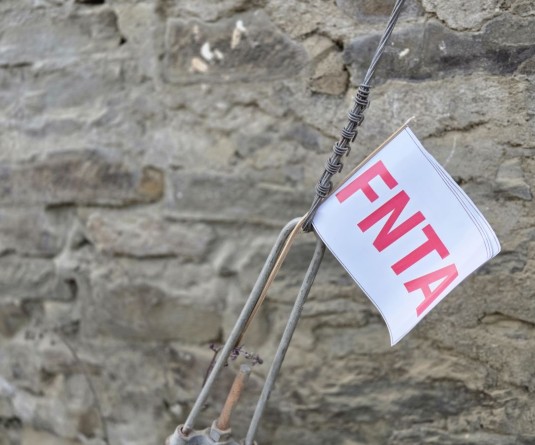
Dr John Mohan Razu
India is a country of paradoxes and contradictions. It blows its trumpet that the world’s largest democracy but we witness Northeast region for decades is militarized. When there are democratically elected governments what is the necessity of having where we see the deployment of missiles which is contrary to militarizing the region. For decades Northeast has largely been weaponized and militarized. A region that posits the presence of military with arms and ammunitions.
For autocrats in a constitutional democracy like India need to have legal tools to unleash and impose on the citizens who go against them. It is an irony that though India became a Republic 75 years ago, is holding on to nefarious laws enacted by the colonizers. One such example is Armed Forces Special Powers Act (AFSPA). The British who colonized India used AFSPA to control those Indians who defied theimperial rule. But the same AFSPA is now being used by the Indian State against its citizens even afterbecoming a sovereign state.
Union of India imposedon the indigenous people of Northeast India on September, 1958. AFSPA was first promulgated onAugust 15, 1942, by a British viceroys and governor-general Linlithgow, under Section 72 of theGovernment of India Act, 1935.Its aim was “to confer special powers upon certain officers of the armed forces”. The promulgation andimposition of such laws on the citizens of Manipur and Northeast has thus far taken the innocent lives ofhundreds and thousands besides rapes, arrests, torture and extra judicial executions.
Under AFSPA, any crime committed by armed forces is given complete impunity. Such provisions canbe called as ‘biopower’, a term coined by French scholar, philosopher, historian and social theorist whoelaborates that biopower is a technology of power which can otherwise be described as ‘technology ofkilling’.This was vividly demonstrated on the 4th and 5th of December, where in the Indian military ambushed14 unarmed civilians belonging to the Konyak indigenous community in a botched-up insurgencyoperation in the Mon district of Nagaland. Whether the operation was a ‘mistaken identity’ or a ‘failureof intelligence’, innocent lives have been lost or whatever no words can justify such a heinous act. Thisincident sent shock waves across the country and once again resurrected the repeal of AFSPA.
Many political parties, human rights and civil society organizations and chief ministers and allies of BJPin the Northeast region have called the GOI for the repeal of AFSPA. And yet, exists. The imposition of AFSPA for the past six decades has givenarmed and security forces a licence to kill – a free pass to do whatever they want. When it comes to syllabi and curricula, removing the ames of colonizers and many other the ruling dispensation saying that we should go beyond colonial mind-sets. The same principle should apply to a draconian law that the British leftand now being continued and used in full swing. AFSPA is active and toxically presenteven in ordinary times where there is no war or internal conflicts or any dangerous situation that arise due tointernal and external conditions.
BJP’s Manipur unit in its electionmanifesto in 2014 assured to repeal of AFSPA. After winning the state elections it has put AFSPA tobackburner. Be it rape or summary killings or mistaken identity the army and para-military forces arewell-protected by the draconian law known as AFSPA. An incident that comes to our memory is the rapeand killing of Thangjam Manorama in 2004 in Manipur, with all protests and struggles, no securitypersonnel has been punished till date.This is how the Indian military and para-military forces are protected under AFSPA.It is high time that the Government of India should consider repealing thisdraconian law.
An incident that we as Indians witnessed in Northeast has been so chilling and gruesome. What happened on December 4 and 5, 2021, was brutal even now grips all of us. How can this happen that 13 civilians would be killed and there would be no criminal prosecution in the case. Is India a banana republic not governed by law? It is time to consider a full repeal of Afspa because it enables such outcomes. As expected, the Supreme court quashed FIRs and set aside all proceedings against 30 army personnel involved in a botched operation in Nagaland’s Mon district in December, 2021, after the Union home ministry under Amit Shah refused sanction for prosecution.
In Nagaland GOI and those who have been fighting for separate homeland seem to be mitigated. At the same time, the growing tussle and tension between communities on ethnic grounds and increasing segregation even now testifies the effective functioning of Afspa. Whatever could be the efficacy and relevancy of Afspa’s, its indiscriminate usage shows the ugly side of it. As a consequence, Afspa has alienated and brought divisiveness between communities, rather than bringing public order.
In one of the recent editorials that appeared in “The Times of India with a caption Afspa Is Obsolteanalyses that “In Nagaland, mass insurgency has retreated as GOI has brought militants to accord, and the state govt, like most others in the region, is in alliance with the Centre. In Manipur, the extreme ethnic violence and segregation speak terribly for Afspa effectiveness. Whatever its accomplishments in the past, today Afspa appears to be delivering less public order, more public alienation.”
Adding further, “In the Mon case, an SIT constituted by the state govt probed how intelligence input about the presence of NSCN K-YA and Ulfa militants ended up in a 21 Para Security Force team opening fire on villagers returning from work in a coal mine. It connected indiscriminate and disproportionate firing to failures to follow the standard operating procedure and the rules of engagement. An army inquiry found it to be “a case of mistaken identity”. What has been the course correction since then? We do not know. The court said, “the concerned wing of the armed forces would be at liberty to take or not to take any disciplinary proceedings against its officers.” If such suspension of accountability and victims’ rights are called unconscionable, we can see why.”
Substantiating further, “It also needs underlining that Afspa has its roots in the colonial Armed Forces (Special Powers) Ordinance, promulgated to suppress the Quit India Movement. Institutional arguments to cling on to its sweeping powers today would have more legitimacy, if sanctions to initiate criminal prosecution were provided in a more rational way. If sanction were to be given in the Mon case, for example, the court made it clear that “the proceedings pursuant to the impugned FIRs may … proceed in ordinance with law and be brought to a logical conclusion.” In other words, Afspa can cover up any wrongdoing. Agamben’s notion of homo sacer is also a person no longer covered by legal or civil rights. No Indian should suffer this condition.” Anthropologist G Kanago Chophy describing the current scenario said: “Indians of the north and the south have in the main ignored the Nagas, or seen them as a kind of pestilence best tackled by the army.”In such a setting, what is happening in Northeast region is resistance in order to exist.





